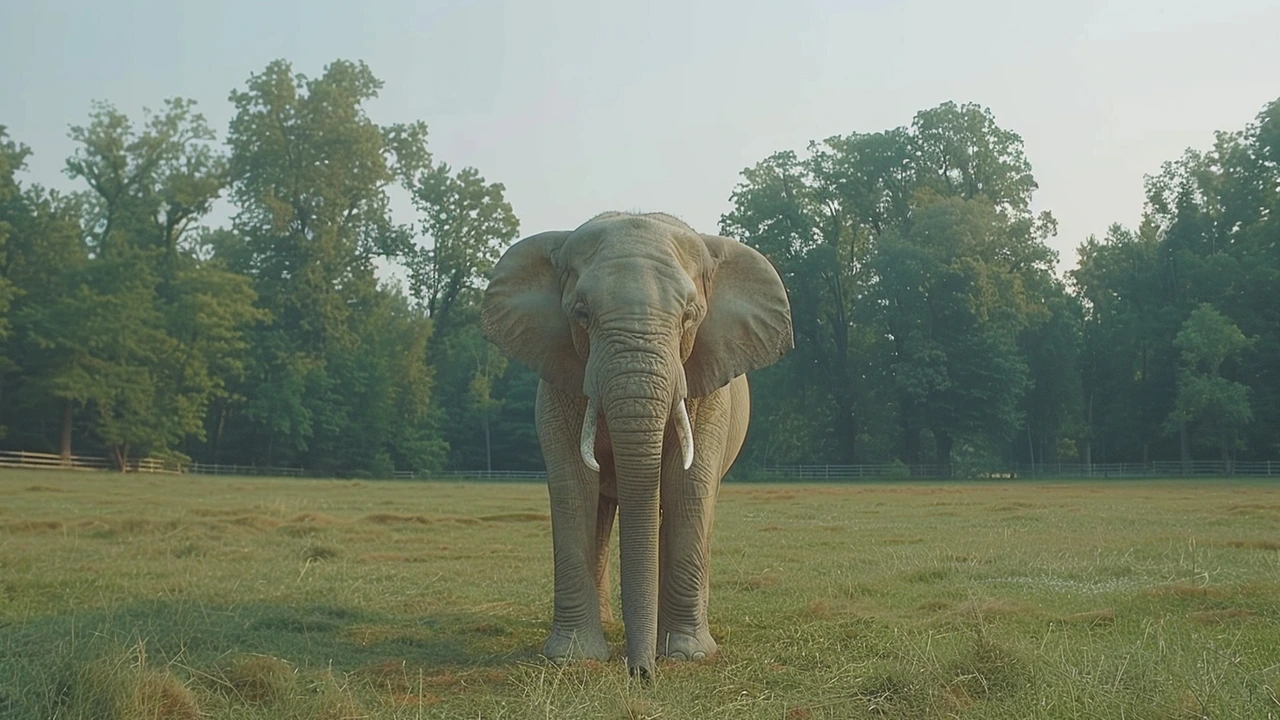Introduction to Elephant Massage
Imagine the gentle giants of our planet being accorded with therapies that not only bring comfort but also aid in their health and longevity. Elephant massage, an innovative practice in the realm of animal care, is emerging as a groundbreaking method that benefits both the physical and emotional well-being of elephants. Traditionally, the care for these majestic beings focused on their diet and the physical space they inhabit. However, the paradigm is shifting towards more holistic methods that include physical therapies such as massages. This approach not only supports the physical health of elephants but also fosters a closer bond between the animals and their caregivers.
The foundation of elephant massage lies in the understanding that, like humans, animals also benefit greatly from touch therapy. It aids in relieving stress, improving circulation, and enhancing overall well-being. The practice, which has roots in ancient traditions, is increasingly being embraced by conservationists and caregivers worldwide. By employing techniques adapted from human massage therapy, caregivers are able to provide targeted treatments to elephants, addressing various health issues ranging from muscle tension to aiding in the recovery from injuries.
The Benefits of Elephant Massage
Elephant massage goes beyond merely a feel-good exercise; it holds profound benefits for the health and well-being of these animals. Firstly, it significantly aids in stress reduction. Elephants, especially those in captivity or rehabilitation centers, can experience high levels of stress due to limited mobility and environmental changes. Regular massage sessions have been shown to reduce the production of stress hormones, leading to a calmer and more contented state of being. Moreover, the improved circulation from massage therapy is crucial for elephants. It ensures that essential nutrients are efficiently distributed throughout the body, promoting healing and boosting the immune system.
Another critical advantage of elephant massage is its impact on the musculoskeletal system. Elephants are massive creatures, and the weight they bear on their joints and muscles can lead to discomfort and mobility issues. Massage therapy helps in alleviating muscle tension and maintaining joint flexibility, which is essential for their overall health and longevity. Furthermore, these sessions provide a unique opportunity for caregivers to conduct routine health checks, allowing for early detection and treatment of potential health issues.
Techniques and Ethical Considerations
The techniques employed in elephant massage borrow heavily from human massage therapy but are adapted to suit the specific physiological and anatomical needs of elephants. Caregivers utilize a combination of gentle strokes, kneading, and pressure point therapy to target areas that commonly hold tension, such as the back, legs, and feet. Essential oils that are safe for elephants may also be used to enhance the therapeutic effects of the massage. However, it is imperative that these sessions are conducted with the utmost respect for the elephant’s comfort and consent. The practice of elephant massage should always be grounded in ethical considerations, ensuring that it contributes to the animal’s well-being without causing distress or harm.
As this practice gains popularity, it's crucial that those involved in elephant care undergo proper training to understand the nuances of elephant anatomy and behavior. This ensures that massages provide maximum benefit without inadvertently causing stress or discomfort to the animal. It also highlights the importance of ethical practices in wildlife conservation efforts, underscoring the need for compassionate and informed interactions with all animals.
The Role of Elephant Massage in Conservation Efforts
Elephant massage is carving a niche for itself within the broader context of wildlife conservation. By improving the well-being of elephants in captivity and rehabilitation centers, this practice contributes to the broader goals of conservation efforts. Healthy, stress-free elephants are better ambassadors for their species, drawing public interest and support for conservation initiatives. Additionally, the practice of elephant massage underscores the importance of compassionate care in conservation efforts, promoting a more ethical and humane approach to animal management.
Furthermore, elephant massage serves as a powerful educational tool, raising awareness about the complex needs of elephants and the challenges they face in the wild and in captivity. Through public demonstrations and workshops, caregivers are able to share knowledge about elephant care, engaging communities in conservation efforts and fostering a deeper appreciation for these magnificent creatures.
Embracing the Future of Animal Care
As we continue to explore more humane and compassionate methods of animal care, practices like elephant massage play a pivotal role in shaping the future of wildlife conservation. They not only improve the quality of life for the animals involved but also foster a more empathetic and caring society. The success of elephant massage in enhancing the well-being of elephants is a testament to the power of innovative, holistic approaches in animal care. It serves as a reminder that at the heart of conservation efforts, there must be a deep respect and love for the creatures we seek to protect.
In embracing elephant massage and other similar practices, we open a new chapter in animal care that prioritizes the physical, emotional, and psychological well-being of animals. It's a journey towards a more compassionate world, where the care we extend to our fellow inhabitants reflects our understanding and respect for all life.

